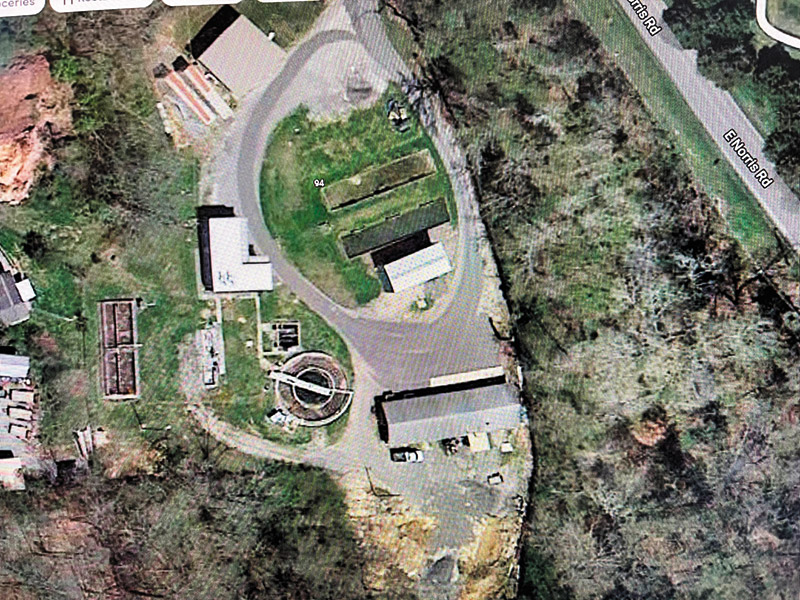Norris cited for sewage violations
City could be facing possible $23,460 in fines for ‘technical’ infractions

This Google Earth satellite view shows the Norris Wastewater Treatment Plant at 94 East Norris Rd. (center-left). Treated wastewater is discharged into nearby Buffalo Creek. (photo:Google Earth )
The city of Norris could be responsible for up to $23,460 in fines to the Tennessee Department of Environment and Conservations for violations of the state’s Water Quality Control Act at the city’s sewage treatment plant, City Council members were told Monday night.
Mayor Chris Mitchell received a “Director’s Order and Assessment” from TDEC’s Division of Water Resources on Monday afternoon detailing the violations, which allegedly occurred from May 1, 2019, through Nov. 30, 2021.
City officials were quick to point out that the problems are with the sewer system, and have nothing to do with the city’s drinking water, which is of very high quality.
The order requires the city to pay an “upfront amount of $4,692” in penalties within 31 days, and then to follow steps outlined in the document to clean up its wastewater discharges to avoid additional penalties that could total at least $18,768 over the next two years.
Norris is required to file a plan of action within 90 days to address how it will solve the problems, and then must stay in compliance for a year after completion of the mitigation measures to avoid paying the rest of the potential fines.
What was surprising to council members and the city’s Water Department, however, is that part of the alleged violations occurred during a time that the city’s water and sewer officials were working closely with TDEC consultants.
Those consultants were provided by the TDEC Knoxville office and were on hand to guide the Water Department through the city’s “voluntary participation” in “a training program conducted by [TDEC] to develop and promote innovative, low-cost approaches to optimizing water quality and reducing energy consumption in wastewater treatment,” the TDEC violation notice acknowledged.
Mayor Chris Mitchell and Water Department officials said they were confused by TDEC’s move to penalize the city for the alleged 54 violations, considering that the city was operating the treatment plant, at 94 E. Norris Rd., under what was essentially TDEC supervision during the time of those events.
Additionally, the violations detailed in the assessment were self-reported by the city to TDEC; they were not the result of a state investigation into potential improper discharge of untreated or insufficiently treated wastewater by the plant.
Council members were told that the violations mostly were the result of the city’s sewer system being literally inundated with stormwater runoff during heavy rains.
City Manager Scott Hackler said that when there is no rain falling, the wastewater treatment plant receives about 200,000 gallons of sewage daily.
“That rises to 1.2 million gallons a day during a rain event,” he said. “So what we’re having to work on is a million-gallons-a-day rainwater issue.”
The city has a separate stormwater drainage system that is supposed to collect that water and deliver it directly to Buffalo Creek. But because of “leaks and connection issues” some of the rain runoff ends up in the sewer system.
Sending that extra stormwater into the creek “is not a health issue as much as it is a technical violation,” Hackler said, because the rainwater flows into the creek when the creek is already flowing at a high volume, which easily dilutes any pollution.
There will be a special called meeting of the council at 7 p.m. March 9 to discuss the response that the mayor will file with TDEC about the “Director’s Order.”
Mitchell said during Monday night’s meeting that the steps outlined in the “Director’s Order” are “work that we should be doing.”

